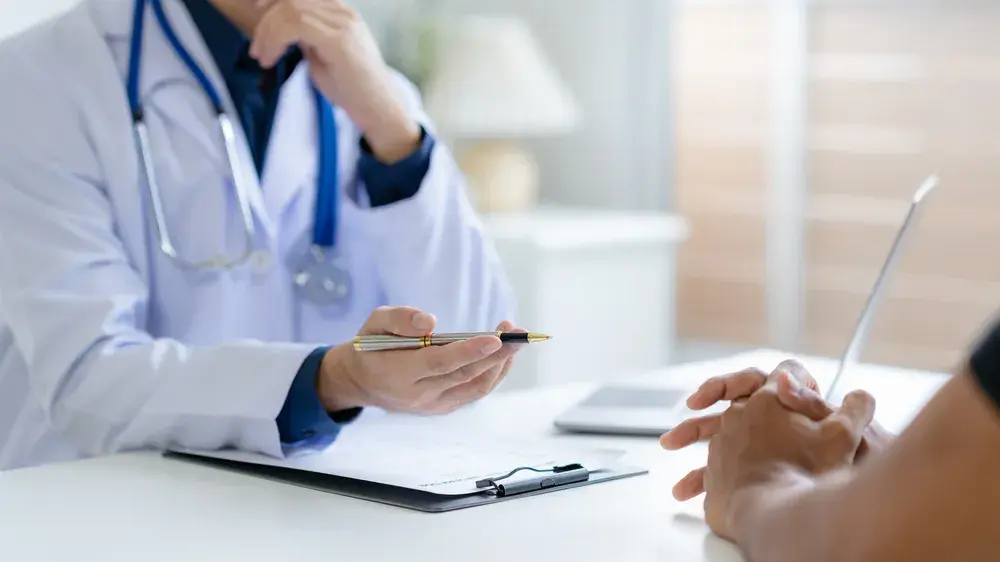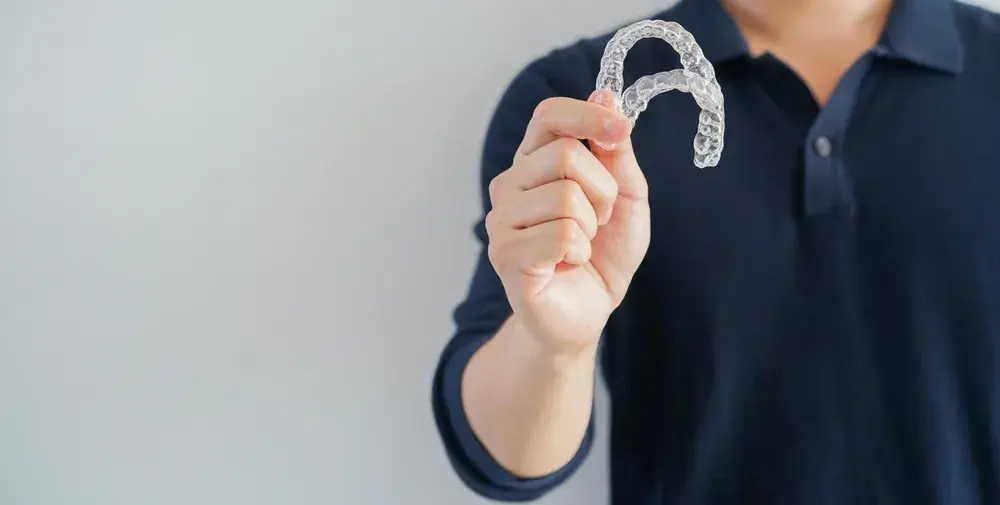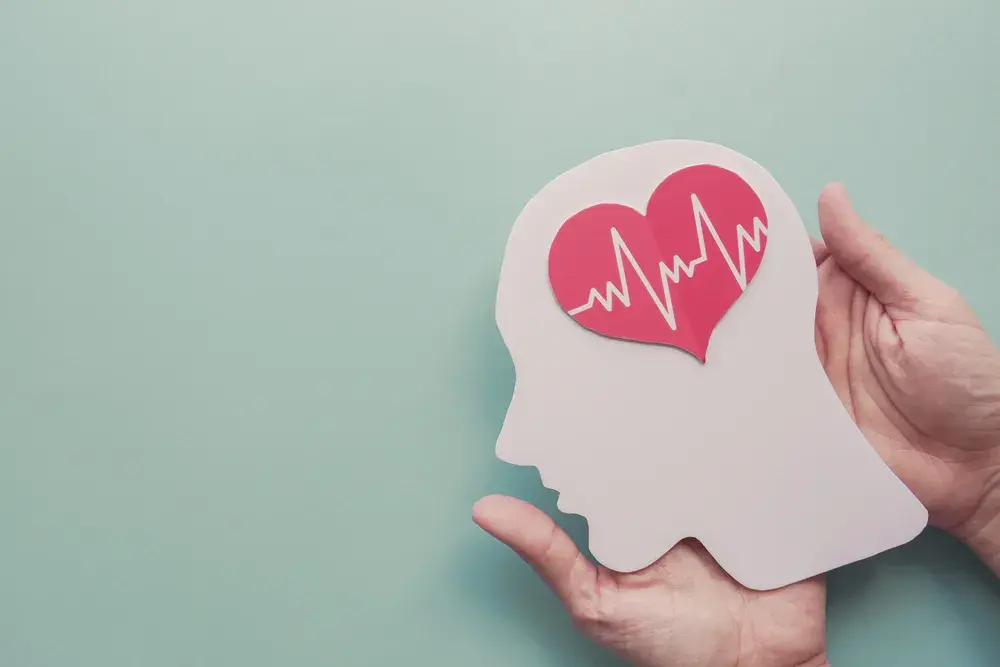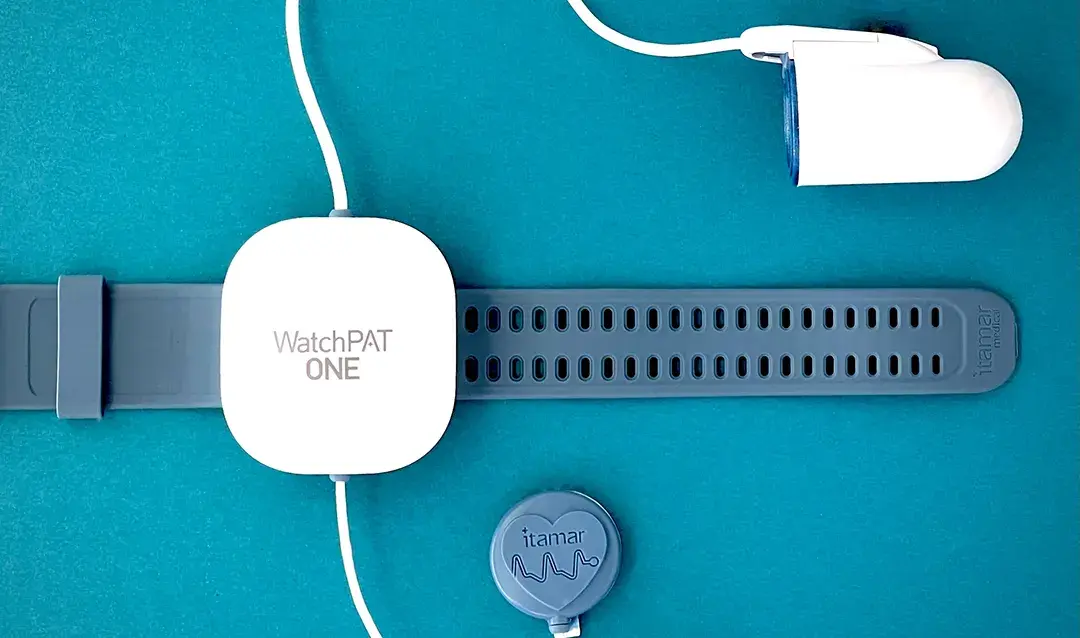Can Sleep Apnea Cause High Blood Pressure?
Dive into the science behind sleep apnea-induced hypertension and find actionable strategies to improve both conditions.
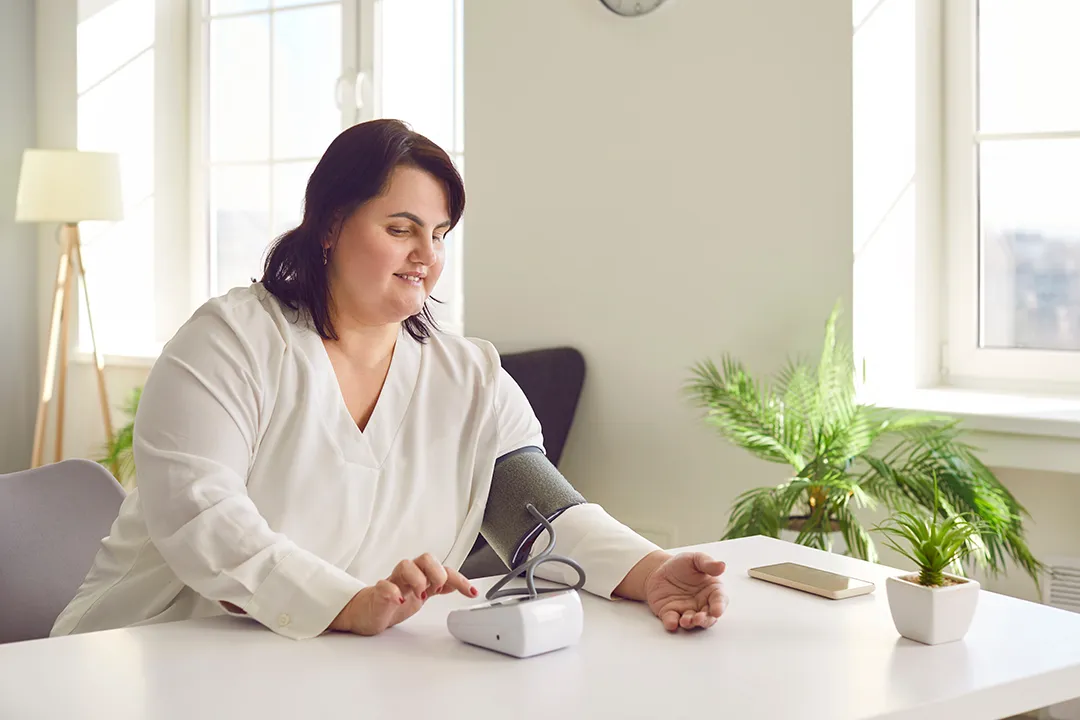
My patients often have both sleep apnea and high blood pressure, which begs the question, “Does sleep apnea cause high blood pressure?”
The short answer is yes. In fact, high blood pressure is the chronic condition most often associated with sleep apnea. As usual, though, there is some nuance to how this occurs in the body. Let’s dig into the specifics to better understand how these two chronic conditions relate.
First things first: what is high blood pressure?
Simply put, high blood pressure, also called hypertension, is a condition in which the blood in your arteries continually exerts too much pressure on your arterial walls.
Some patients, hearing this definition, imagine high blood pressure as a ticking time bomb, ready at any moment to burst their blood vessels like overinflated balloons. The real risk, though, is far more insidious. You see, the key word in that definition is continually. Blood pressure ebbs and flows naturally—so for diagnostic purposes, we don't fret over a single high reading. But when we see a trend of high blood pressure readings over an extended period, that's a red flag for worrying things to come.
How does sleep apnea cause high blood pressure?
As you doze off at night, sleep apnea causes your airway to relax and collapse, often leaving you gasping for breath. Suddenly, your body's fight-or-flight mechanism—the "sympathetic" response—springs into action, pumping you full of adrenaline and cortisol to restart your breathing.
This dramatic process—called an apneic event—can recur up to a few hundred times per night! This elevates your blood pressure in a few different ways:
1. Instant Blood Pressure Surges
The moment your body's fight-or-flight response gets activated, your blood pressure naturally increases, preparing you to face an imminent threat. In normal circumstances, this isn't a bad thing—it's one of many ways that your nervous system keeps you safe.
The issue with sleep apnea, though, is that these blood pressure surges are happening throughout the night, when your body should be in a state of rest.1
2. Persistent Blood Pressure Elevation
Sleep apnea's influence extends beyond the night, leaving a lasting impact on your blood pressure throughout the day. That's because your body's fight or flight response triggers the release of stress hormones like adrenaline and cortisol, which stay in your body long after the end of any singular apneic event.1
Other factors may also contribute to a long-term increase in your blood pressure. These can include regular activation of the kidneys (which regulate blood pressure), inflammatory changes, insufficient damage control caused by oxygen, and harm to the blood vessels themselves.1
Is sleep-apnea-related high blood pressure dangerous?
Absolutely. Chronic hypertension wreaks havoc on the delicate capillaries in your kidneys and eyes, potentially leading to kidney disease and vision loss. Worse still, it inflames the vessels around your heart and brain, increasing the risk of heart disease or stroke.
There’s also growing evidence that sleep apnea and high blood pressure have what's called a bidirectional relationship, meaning they make each other worse, leading to compounded risk for bad health outcomes.4
How common is it to have both high blood pressure and sleep apnea?
Very common. In fact, the American Heart Association estimates that up to 56% of patients with hypertension also have sleep apnea.2 The connection is so clear, it's recently led the AHA to recognize sleep apnea as an “independent risk factor” for high blood pressure—even in the absence of other potential causes.
Plus, sleep apnea shows a staggering 83% co-occurence in patients who suffer from "resistant" hypertension. This refers to high blood pressure that stubbornly resists control, despite medication and lifestyle adjustments.3
Could sleep apnea be the sole cause of my high blood pressure?
Like most chronic conditions, high blood pressure is multifactorial, meaning it may be spurred on by a multitude of triggers. Things like genetics, poor nutrition, a sedentary lifestyle, excess alcohol, smoking, and mental stress can all play a role, as can outside health conditions like obesity, diabetes, and kidney disease.
If none of these contributors apply to you, though, sleep apnea might be the main factor causing your high blood pressure.
Can treating sleep apnea help control high blood pressure?
Yes. Numerous studies hint at a promising link, revealing that beginning sleep apnea treatment can have a positive impact on blood pressure. Results tend to be most pronounced in younger patients, those with severe sleep apnea, and those who are consistent with nightly treatment.4
Remember, though, that high blood pressure isn't usually caused by sleep apnea alone—so a comprehensive health approach is key to achieving best results.
I think sleep apnea might be causing my high blood pressure. What do I do?
If you haven’t been formally diagnosed with sleep apnea yet, that’s your first step. Fortunately, a convenient at-home sleep study is all you need to obtain an accurate diagnosis.
Upon receiving a positive sleep apnea diagnosis, you should begin treatment as soon as you can. Treating your sleep apnea may not completely cure hypertension, but for many of my patients, it's an extremely motivating first step. As you experience better sleep and see improved blood pressure readings, you'll find it easier to embrace the holistic lifestyle choices necessary to reverse hypertension and improve your overall health.
Phillips CL, O'Driscoll DM. Hypertension and obstructive sleep apnea. Nat Sci Sleep. 2013 May 10;5:43-52. doi: 10.2147/NSS.S34841. PMID: 23750107; PMCID: PMC3666153.
Pedrosa RP, Drager LF, Gonzaga CC, et al. Obstructive sleep apnea. Hypertension. 2011;58(5):811-817. doi:10.1161/hypertensionaha.111.179788
Logan AG, Perlikowski SM, Mente A, Tisler A, Tkacova R, Niroumand M, Leung RS, Bradley TD. High prevalence of unrecognized sleep apnea in drug-resistant hypertension. J Hypertens. 2001; 19:2271–2277.
Gleeson M, McNicholas WT. Bidirectional relationships of comorbidity with obstructive sleep apnoea. European Respiratory Review. 2022;31(164):210256. doi:10.1183/16000617.0256-2021
